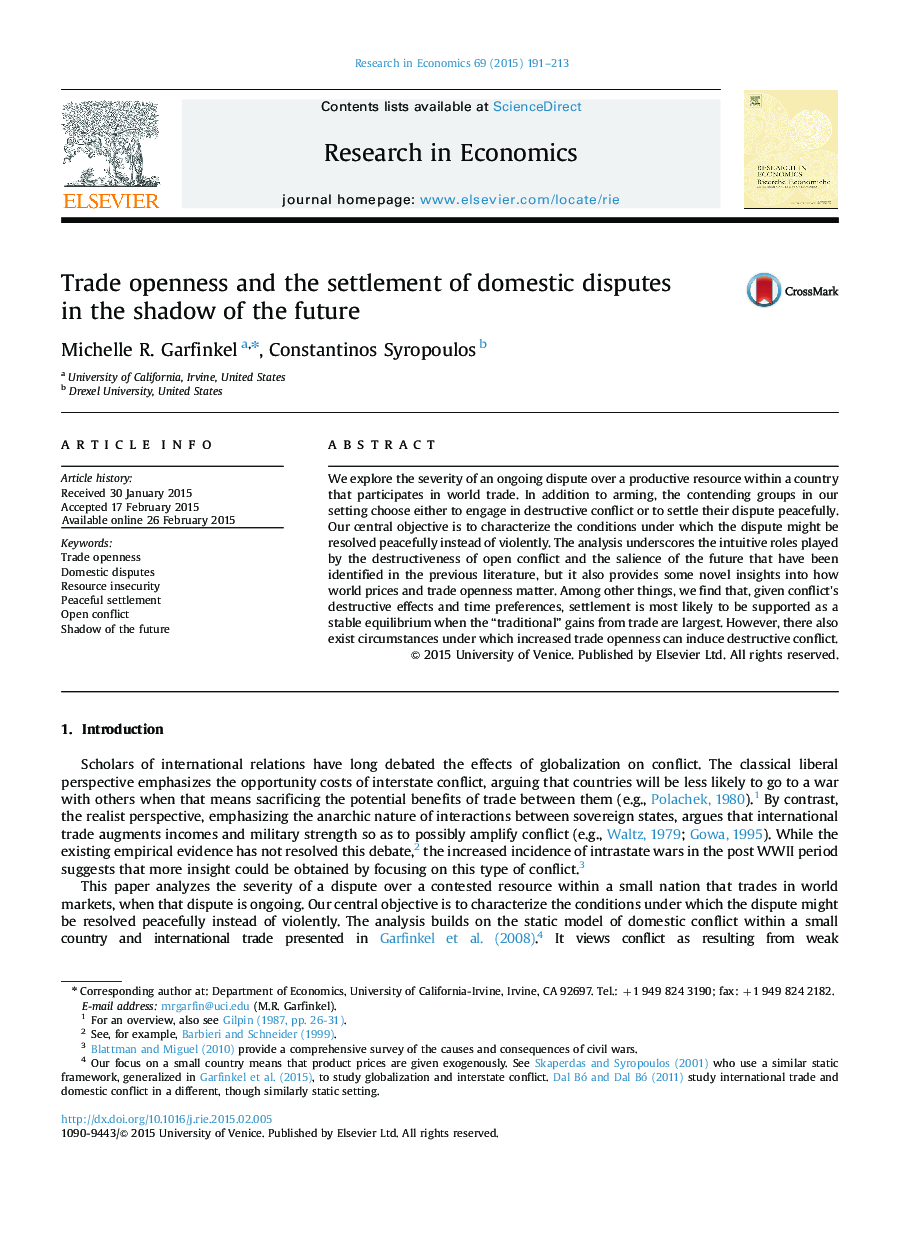| Article ID | Journal | Published Year | Pages | File Type |
|---|---|---|---|---|
| 984372 | Research in Economics | 2015 | 23 Pages |
•We study an ongoing resource dispute within a country that trades with the world.•Contending groups can choose either open conflict or peaceful settlement.•Open conflict is a non-cooperative (and sometimes Pareto dominant) equilibrium.•There exist conditions under which settlement is another stable equilibrium.•These conditions involve conflict׳s destructiveness, time preferences and prices.
We explore the severity of an ongoing dispute over a productive resource within a country that participates in world trade. In addition to arming, the contending groups in our setting choose either to engage in destructive conflict or to settle their dispute peacefully. Our central objective is to characterize the conditions under which the dispute might be resolved peacefully instead of violently. The analysis underscores the intuitive roles played by the destructiveness of open conflict and the salience of the future that have been identified in the previous literature, but it also provides some novel insights into how world prices and trade openness matter. Among other things, we find that, given conflict׳s destructive effects and time preferences, settlement is most likely to be supported as a stable equilibrium when the “traditional” gains from trade are largest. However, there also exist circumstances under which increased trade openness can induce destructive conflict.
